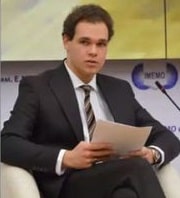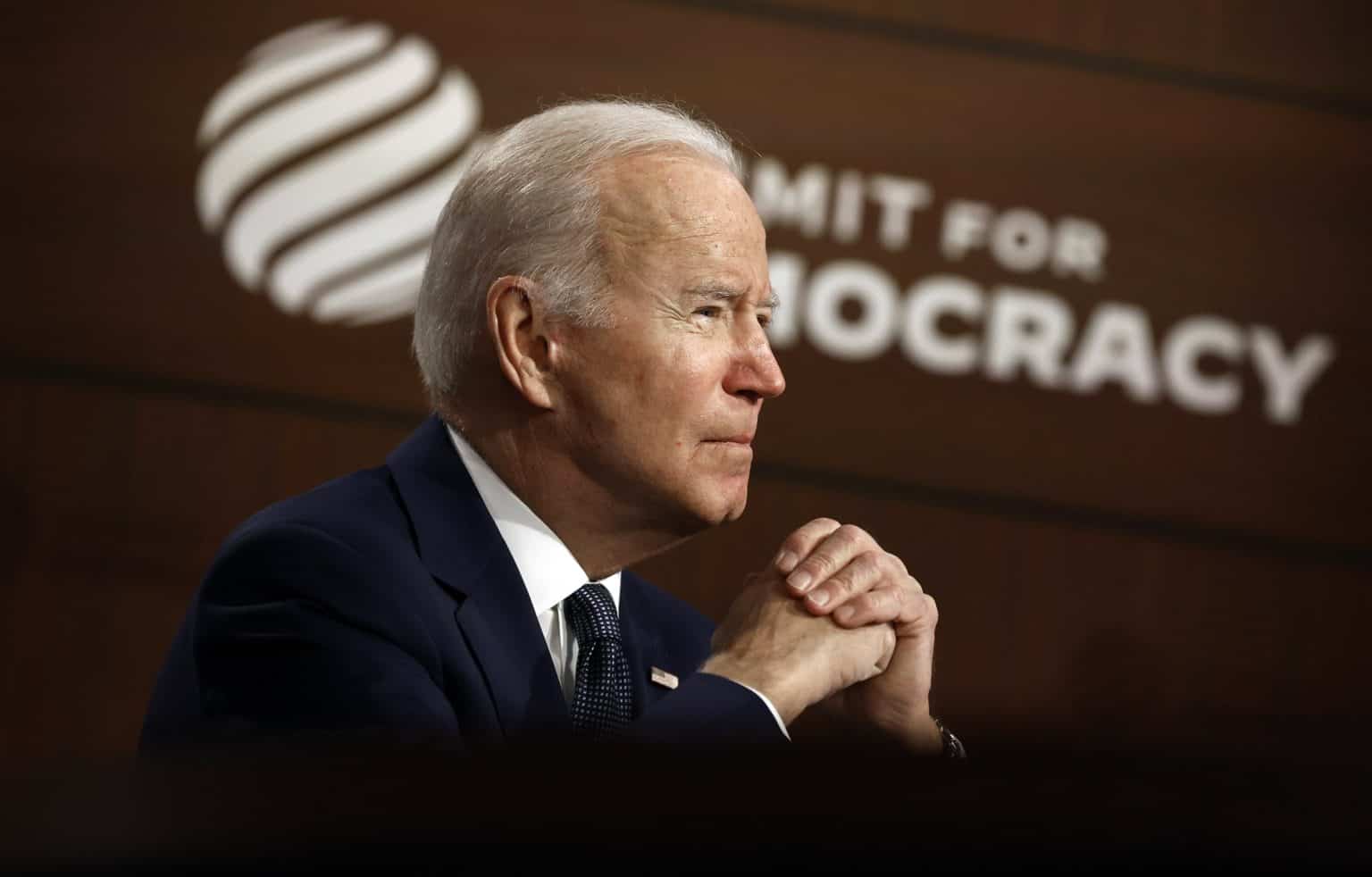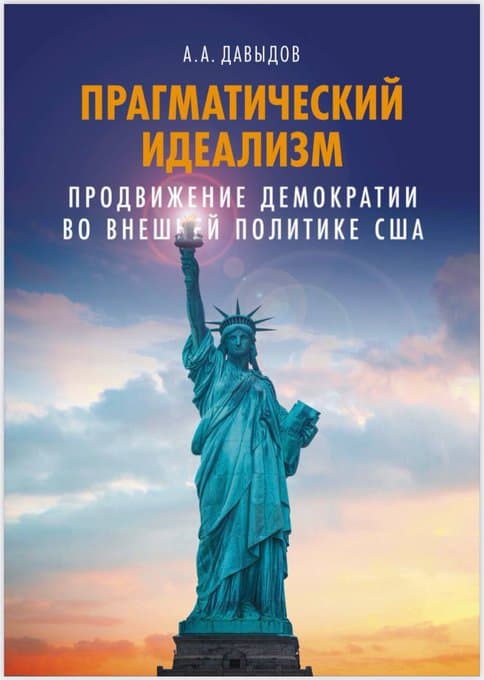World Geostrategic Insights Interview with Dr. Alexey Davydov on the promotion of democracy as a U.S. foreign policy practice, the possibility of exporting Western democratic institutions and values, and whether ideology really influences and shapes U.S. international relations.

Dr. Alexey Davydov is a senior research fellow at the Center for North American Studies at the National Research Institute of World Economy and International Relations (IMEMO) of the Russian Academy of Sciences. He studies U.S. and Russian foreign policies and strategies in the regions of the Middle East, Northern Africa, South and Central Asia, and in the broader Post-Soviet Space. Dr. Davydov is the author of the book “Pragmatic Idealism: Promoting Democracy in U.S. Foreign Policy” (2022). @AlexeyADavydov
Q1 – The foreign policy of rich, democratic countries includes a major long-term goal: to promote democracy in countries where it is nonexistent, precarious and dysfunctional. Far from being just an abstract idea, moral duty or political promise, the United States, European Union, Canada, Australia, Scandinavian countries and others spend billions a year to support programs to strengthen the rule of law and promote human rights. But often diplomacy, money, technology and military interventions have not yielded the desired results. You recently published the scholarly monograph “Pragmatic Idealism: Promoting Democracy in U.S. Foreign Policy.” What are your main findings and conclusions?
A1 – Thank you very much for asking this question. The problem of desired results of democracy promotion policies is one of the most essential, because it raises a more specific and important question – the question of effectiveness and, therefore, the criterias of which could help us to measure how different foreign policy practices help to achieve stated or unformulated policy goals.
While I was studying the scientific literature on the issue of democracy promotion I noticed that predominantly the researchers tend to understand the word “democracy” in the term “foreign policy of democracy promotion” in a literal manner, in the same way that was formulated by the distinguished American intellectual Robert Dahl. At the same time, I believe that such an approach to study democracy promotion as part of foreign policy of any government is methodologically incorrect. Even one of the most respected researchers in this field Thomas Carothers characterized this part of the U.S. foreign policy as “semi-realistic”, because it had within itself a dual goal-setting mechanism, that includes at the same time the ideological imperatives of democracy promotion concept and the goals that are formulated on a more materialistic rational way via the national interests.
Therefore in order to identify how efficiently democracy promotion policies spread democracy around the world a researcher should first of all answer the question whether this foreign policy is meant to do so, whether it is initially designed for it. That is why in my recently published book the main research question is “What does democracy promotion mean in the U.S. foreign policy?” and I put the term “democracy promotion” in brackets to underline that the author does not initially have an understanding of what it means.
So, in order to find out, I have studied the genesis of democracy promotion concept, its discourse, ideological imperatives, the history of its institutionalization in the U.S. foreign policy mechanism (what functions it had to fulfill and what were the international circumstances at that moment). Then I have studied two macro-regional cases (Post-Soviet Space and Greater Middle East) and two country cases (Iraq and Afghanistan) by analyzing official rhetoric, strategic planning documents, and statistics on economic, diplomatic, military, political and ideological foreign practices. To be more specific, I was trying to identify the imperatives of democracy promotion campaigns in all these cases by using the data on trade, investments, arms exports, National Security Strategies, Party Platforms, State of the Union Addresses and other governmental and partisan official documents, public speeches, broadcasting, economic, military and political aid. In this regard to be more precise in my analysis I had to download and systemize all the data of the National Endowment for Democracy annual reports since 1984, which had never been done before in this research area.
To cut the long story short I argue that the U.S. foreign policy of promoting democracy is a policy of correcting the social development trends of foreign societies in order to increase their controllability. Sometimes democracy promotion policies are indeed ideologically driven. The cases of Iraq, Egypt, or the Soviet Union could present one of the most visual examples for that. But also these practices present a very powerful foreign policy instrument, that requires very modest financial resources and can bring serious practical results globally, ideologically or in specific situations.
Q2 – On March 29, 2023, during the second Democracy Summit, President Joe Biden offered an optimistic view of the health of the world’s democracy, declaring that leaders are “turning the tide” in stemming a years-long backward slide in democratic institutions. However, a new report by the research institute Varieties of Democracy indicates that 72 percent of the world’s population now lives in autocracies, up from 46 percent in 2012, and Freedom House recently declared 2022 to be the 17th consecutive year of global democratic decline. What is your opinion? Is it really possible to export democratic institutions and values?
A2 – From my perspective it is very difficult to artificially export democratic institutions in values from one country to another. Primarily because of the fact that the political model of development depends predominantly on the internal nature of any society. Moreover, different cultures sometimes have polar visions of democratization processes, which, from my perspective, depends very much on the understanding of the nature of legitimacy of political power in different societies. Therefore, if the methodology of this research is accurately showing a global decline of democratic norms (even among the Western societies) for almost two decades, it would be more adequate not to increase the budgets of democracy promotion programs, but try to identify the roots of this process.
I don’t have a straight answer to that, but it seems that the negative and even aggressive practices of democracy promotion in the Middle East could have in some part discredited the democratic ideas among the developing societies. A lack of success stories of democracy promotion practices and the recent troubled presidency of Donald Trump could have ideologically undermined the sympathies for this model. Nevertheless, I presume, that is not one of the most crucial reasons that influenced that global trend.
Q3 – The Biden administration emphasizes that the United States is fighting a global battle for democracy against autocracy. But in reality, the main division in the world for the United States is not between democracies and autocracies, but between countries that support the existing international order and the two autocracies-China and Russia-that according to the United States seek to reshape it in an illiberal way, challenging the three essential parts of the post-Cold War global system: the U.S. military hegemony, free-market globalization, and a specifically neoliberal view of democracy and human rights. What is his view? Does ideology really influence and shape U.S. foreign policy?
A3 – Both yes and no. Throughout the last forty years China has demonstrated the effectiveness of its political and economic system in the issue of developing its society. The economic success internally and its presence in the entire world raises the respect for Beijing strategy and policies. Moreover, a lot of ideological requirements and politically sensitive standards that come with economic aid, trade or investments from the West make them less competitive in comparison with those that come from China.
Thus, the changing perception of China in the economic and political sphere could easily transform the global ideological narrative, and we could see a situation that could remind us of the systemic confrontation between the socialist and capitalist states. Let’s remember that the USSR had a great number of supporters among the intellectuals in the Western countries besides having great economic problems. Right now Beijing does not have a global ideological infrastructure and presence as the Soviet Union did, or as the United States has right now, therefore it is too early to talk about it. But since the United States is already framing the Sino-American confrontation in such an ideological narrative, any new story of success of China and failure of the United States could raise the number of sympathizers of Chinese policies in the Western nations. Whether this will happen or not – it’s a question, but as history and as the modern situation in the world system tells us – the competition of ideological narratives about whose model of development is more effective is still a part of international relations.
Dr. Alexey Davydov – Senior research fellow at the Center for North American Studies at the National Research Institute of World Economy and International Relations (IMEMO) of the Russian Academy of Sciences, author of the book “Pragmatic Idealism: Promoting Democracy in U.S. Foreign Policy” (2022). @AlexeyADavydov








